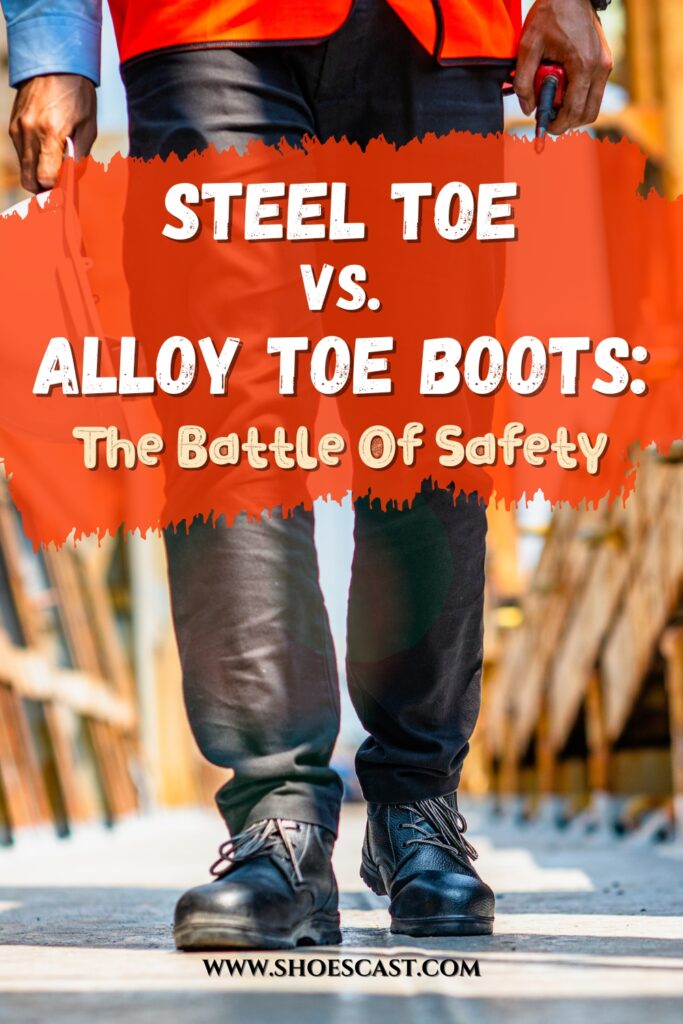Are you looking for the best safety work boot option, but you are not sure whether to opt for steel toe boots or alloy toe ones? If so, then you have stumbled upon the right kind of article that will help you get rid of all the question marks that have been circling above your head for the last couple of days.
First of all, what do these terms even mean? If you are someone who happens to work in challenging working environments, then I am positive you already know at least some of the characteristics of these types of safety boots.
And if not, no worries – you are about to find out!
My first encounter with steel toe caps was in high school with Doc Martens. Bear in mind I was no worker, just a regular school girl, but wearing those boots has seriously saved me from a lot of unnecessary trouble and potential injuries.
So, you can only imagine how beneficial these boots can be to the people who actually need to wear them to keep their feet safe at work.
Having protective toe caps is a paramount feature of any safety work shoes. As a heavy-duty worker, your precious toes have to be protected from various external hazards, and you simply must not question the safety and general health of your feet at any time.
So, steel toe vs. alloy toe boots? Which ones do you choose? What’s the difference? Let’s find out!
Steel toe vs. alloy toe boots: how do they differ?
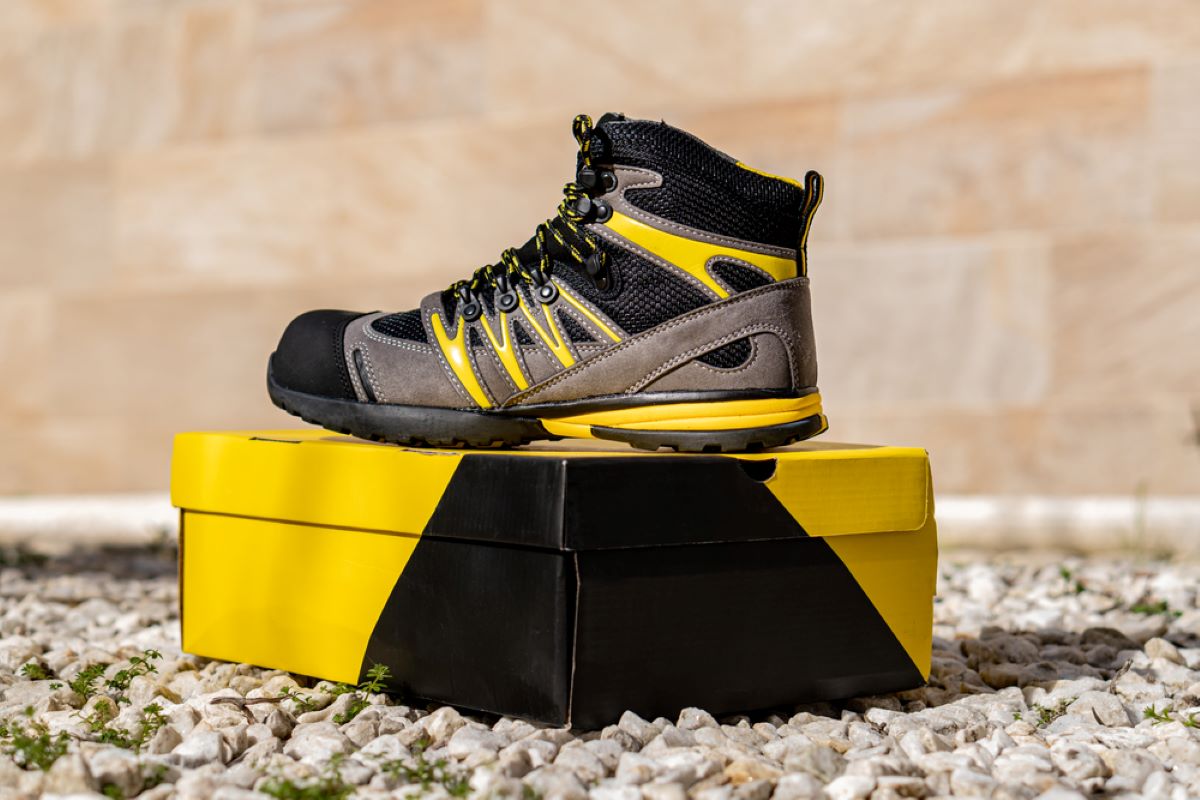
Both steel toe and alloy toe boots are very good and protective for your feet, but they do, however, differ in many instances which we will discuss below.
Generally speaking, their main difference is in the material their protective cap is made of.
Steel toe boots come with a toe cap made out of steel. This kind of footwear is designed with protection in mind as they are perfect for the most hazardous working environments. They will protect your feet if anything heavy falls on them or if you step on anything sharp.
The thing about these boots is that the steel toe cap can set off metal detectors. So, they are not particularly suited for traveling or for working in high-security areas.
These boots have been the safety footwear option for many workers for over 80 years. They are standard for people who are on the lookout for high-quality boots which are not going to break the bank.
Alloy toe boots, on the other hand, come with a toe cap that can be made out of materials such as aluminum, titanium, nickel, or a mixture of other lightweight materials.
These boots have gained popularity in recent years as more and more workers have started to choose this type of safety boots for themselves. They are equally protective and do not set off metal detectors, which is definitely a good feature to keep in mind.
Now that we have a rough picture in mind, let’s see what other differences these boots have.
1. Weight
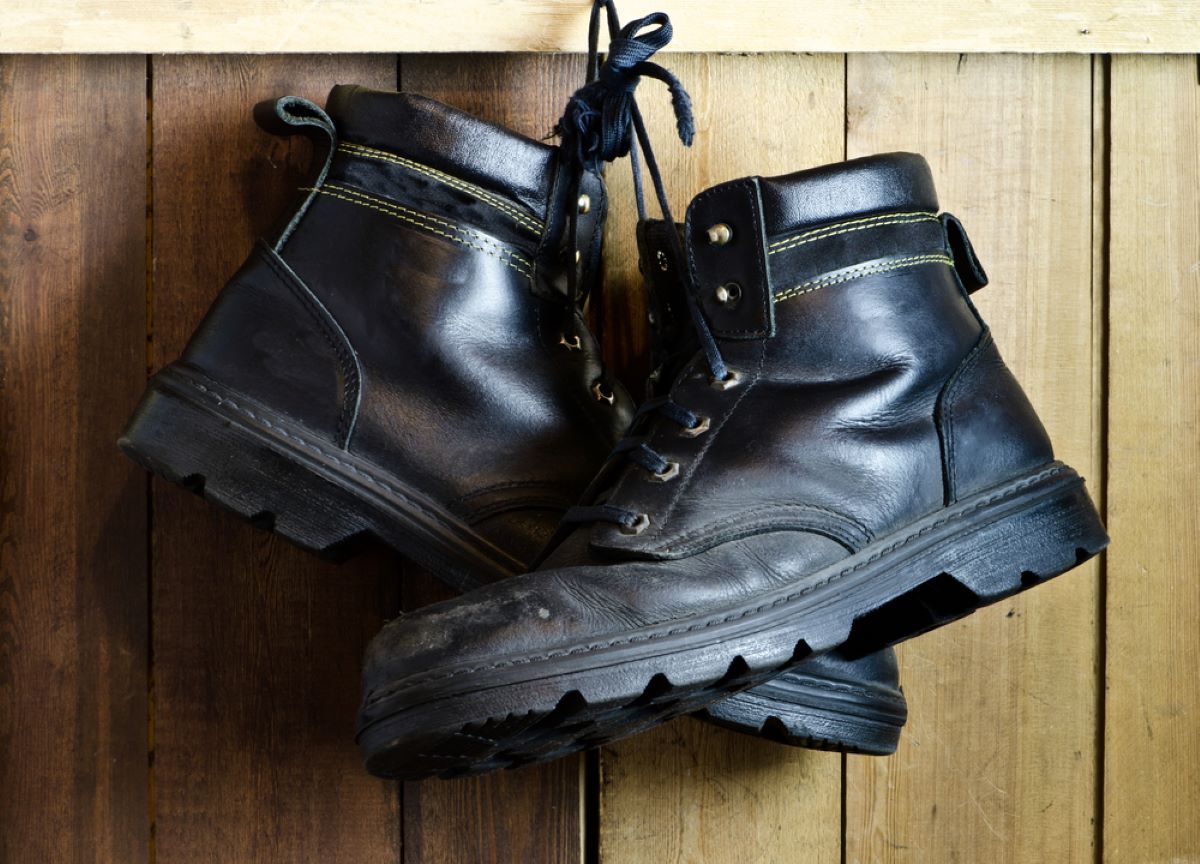
When it comes to their weight, steel toe boots are significantly heavier than alloy ones.
An average pair of steel toe boots usually weighs around 3 lbs to 4 lbs, although a bigger pair can easily reach 6 lbs. The weight of these boots doesn’t sit solely in the toe cap, but on some other factors as well, like the padding, the material of their outsoles, insulation, and others.
When you think about it, the weight of steel toe boots is very acceptable and human feet can endure these numbers pretty well. Besides, these are working boots, and they have to be easy to walk and work in.
But over time, the heaviness of these boots can become detrimental and result in different conditions, like foot fatigue, plantar fasciitis, knee, joint and back pain, and others.
Alloy toe boots, on the other hand, are a lot lighter. The maximum weight of an average pair is around 3 lbs, which makes these boots up to 50% lighter than their steel toe counterpart.
2. Comfort
As far as comfort goes, both of these boots are pretty comfortable. As mentioned before, they were designed for people who work in pretty challenging conditions and rough terrains, so they simply have to feel good on one’s feet.
Alloy toe boots might be a tad bit more comfortable to wear since they are, as I have already said, significantly lighter than steel toe boots. However, at the end of the day, it all boils down to each worker’s individual preference.
The comfort of work boots is largely determined by their fit. These boots simply have to fit like a glove – not too big, nor too loose – in order to be truly comfortable.
These two boots also differ quite a bit in the width apartment. The alloy toe cap is almost 4 inches wide, while the steel toe one is around 3.5 inches, which is a feature that tells us that alloy toe boots have a wider toe box, i.e., they provide more space for toes, making them more comfortable for your feet.
3. Safety and protection
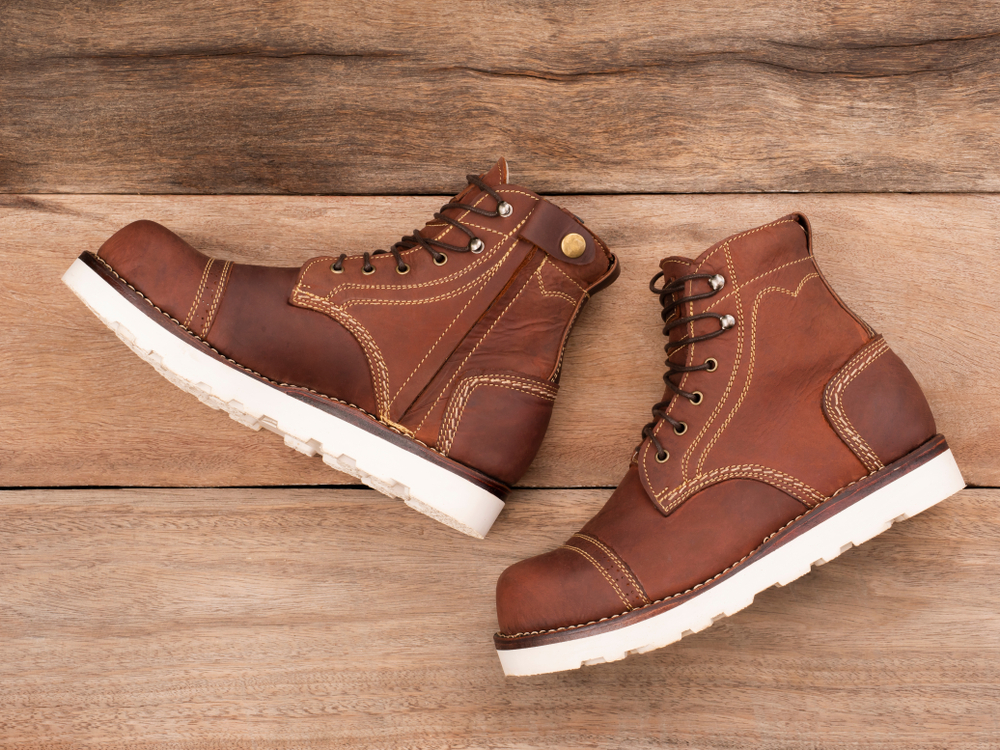
Since steel and alloy toe boots fall into the category of safety work boots, they, of course, both provide a fair amount of safety and protection.
Steel toe boots are known to be the strongest toe protection on the market today. They offer amazing protection from various external factors and potential accidents in the workplace.
However, these boots conduct electricity, so they might not be the most ideal option for workers whose job description is working in fields that deal with high voltages.
4. Durability
When it comes to durability, I think it’s pretty obvious by now which of our contestants will bear the title of “the most durable work boot.”
It’s the steel toe boot, of course. They are the most durable footwear option there is. Once you invest in them, you can be sure they will be a part of your working gear for a long, long time.
Alloy toe shoes are pretty durable, too, but they are not as durable as steel toe ones.
5. Price
And finally, when it comes to pricing, alloy toe boots are notably more expensive than steel toe ones.
The average price of alloy toe boots is around $150, while steel toe ones can be found for around $50 to $60.
And what are composite toe boots?
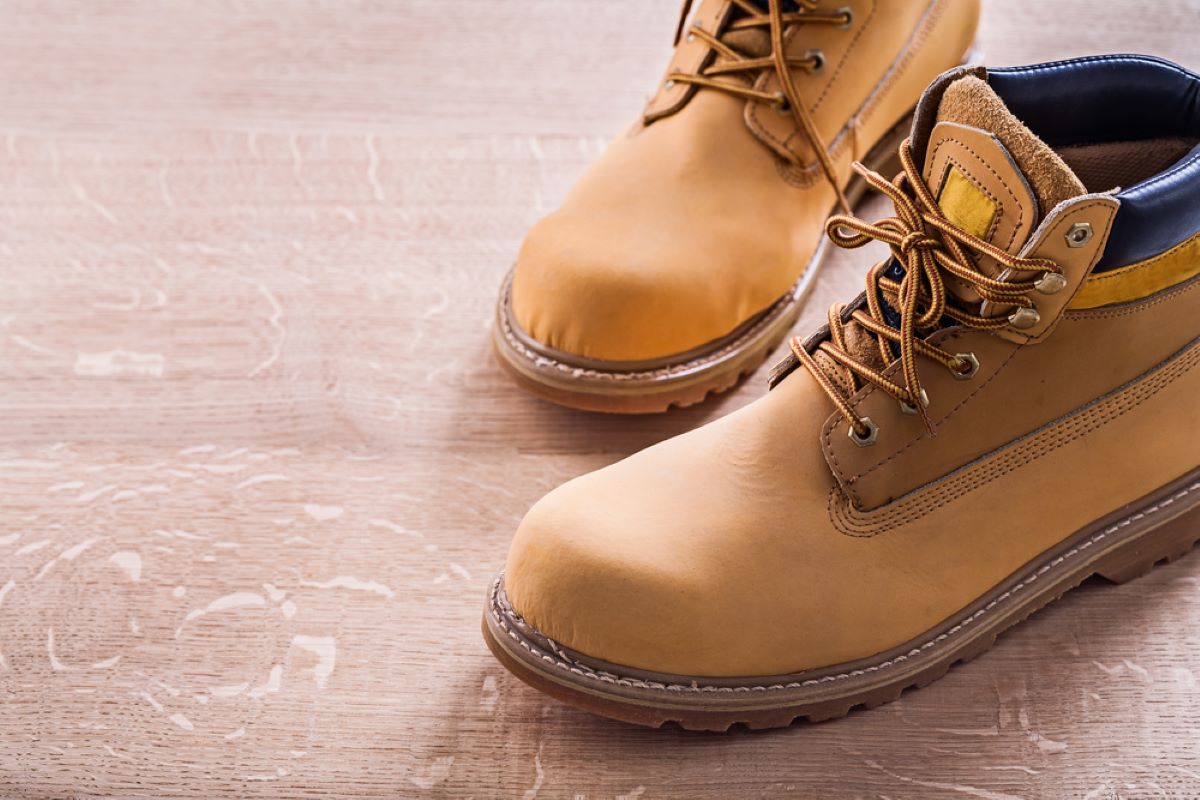
These two types of safety work boots are not the only options on the market. A third safety footwear option, believe it or not, joins the “battle of safety” game, and that is – the composite toe boot!
Composite toe boots are a type of safety work boots that have a protective cap made out of materials, like carbon fiber, kevlar, plastic, or fiberglass. They meet the same protective standards as steel and alloy toe boots, but they are different in many ways.
First of all, they are the lightest option of all safety footwear on the market, which is a feature that makes them extremely comfortable to wear for extended periods of time.
Secondly, they are non-metallic and a perfect option for workers whose job description requires them to wear shoes that can easily pass the metal-detector test. They are also a great option for people who work with electricity since they are non-conductive.
These boots offer enough protection and are fairly durable, but of course, the level of these features can never be compared to steel and alloy toe boots.
Lastly, this type of safety work boot is often the most expensive one.
How important are safety boots and how to choose the right pair for yourself?
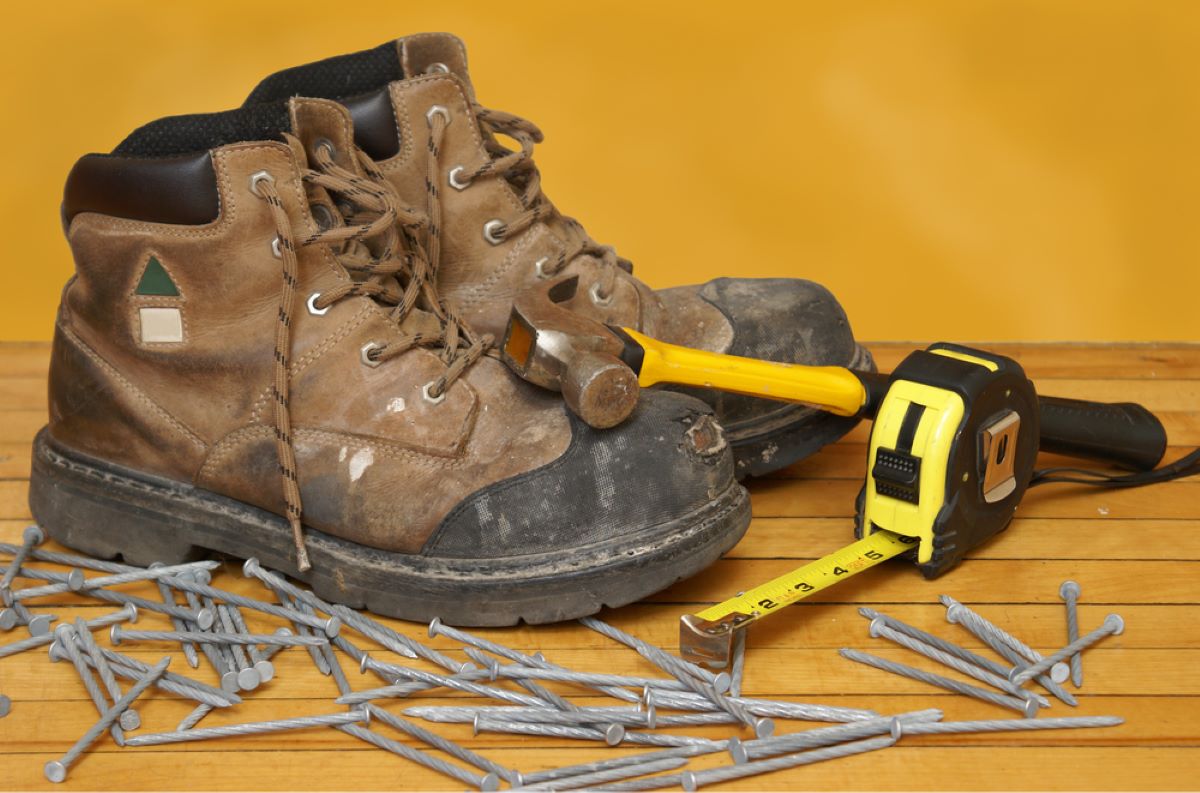
Now that we are familiar with the gist of every type of safety working boots, it’s time to briefly discuss why they are in fact important to wear, and what principles you should consider when purchasing them.
Safety work boots have their purpose. They were designed to protect workers’ feet, both male and female. Therefore, they cannot be replaced by a regular boot option. If the working conditions are hazardous – these boots should definitely be on your feet!
These boots are there to prevent any potential foot injuries. They protect the feet from burns, cuts, and punctures, and they shield the foot area from anything heavy that might fall on it.
Because of the amazing grip and traction that these boots usually have, a person wearing them will not have to worry about slipping and falling and will be able to walk and work safely and confidently on challenging surfaces and uneven terrain.
So, who is our winner in the steel toe vs. alloy toe boots battle (or even composite toe boots)? What type of safety work boots should you opt for?
When it comes to deciding what safety boots to buy, at the end of the day, it mainly comes down to your personal preference, budget, and job description.
Make sure you are not reckless with your decision. Take into consideration all the necessary factors and be very wise with what you want and need.
Also, make sure your safety work boots provider is reliable and safe. The place you buy your work footwear is extremely important as well since you don’t want to end up with something that’s not high-quality and good for you.
